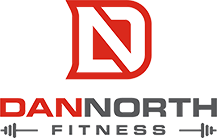We exert physical and mental effort on a daily basis, some days more than others. This effort brings stress on the mind and body.
Now, we have two choices here.
- Continue to work while we neglect recovery and our bodies break down.
- Work with a healthy balance of recovery to allow our mind and body to perform at its best.
Stress brought through exercise can be extremely beneficial for the body, if coupled with effective recovery methods. However, when focusing solely on the workout and neglecting your recovery, overtraining can occur.
Athletes and gym goers alike are constantly overtraining and doing more work than their bodies can handle. Everyone wants to be better, but being better isn’t always about training harder. It’s about training smarter by allowing your mind and body to recover so you can perform at your best. Similar to athletes overtraining would be the busy corporate executive working 60-80 hours a week. These are the type of people who don’t stop working because they are constantly finding more things to do.
SYMPTOMS OF OVERTRAINING:
- Constant aches and pain in joints or ligaments
- Chronic or nagging injuries
- Decreased performance (strength, endurance, etc)
- Restless sleep
- Stress or change of mood
- Lack of motivation
If you have or are experiencing any of the above listed symptoms, there are ways some ways to recover and bounce back from overtraining.
- Take a complete rest. More often than not, if people are overtraining, they’re putting too much demand on their bodies and nervous systems. Sometimes, doing nothing and giving your mind and body a complete rest for one to two weeks is what you need. Mobility and stretching would be the only focus during this time. OR MOBILITY DRILLS TO MAKE YOU MOVE BETTER, SEE HERE
- Change your program. It could be that you have been following the same routine for a while now. Maybe it’s time to switch things up and focus on something else. Have you been doing a lot of strength work? How often have you worked with kettlebells? Do you ever focus on core training?
- Active recovery. Rather than taking a complete rest, active recovery is another way to combat overtraining and allow your body to recharge. Go for a swim, bike ride, do yoga or other low impact activities to get the blood flowing.
- Look at your nutrition. Is what you’re eating in accordance with what you’re putting your body through in the gym? Is your food intake the level of quality it takes to make your performance in the gym better?
- Keep a training diary. This is one of the key strategies to making sure you aren’t overtraining because you know exactly what you did in the gym every day. This is a reference tool I strongly recommend if you’re going to take your time in the gym seriously. Track your weights, workouts, reps, sets, rest times…Be as specific as you want. You can even write how you slept last night, what you ate, how you’re feeling, if you worked a long day, trained in the morning…All of these variables factor into the quality of your workouts and ultimately will dictate what direction your training is going.





